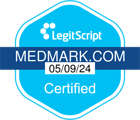San Antonio, TX has a place where you can safely go through opiate withdrawal while pregnant. They recognize the need for specialized counseling during pregnancy and careful medical monitoring of your withdrawal. Most important, you need to know that it’s possible to successfully withdrawal from opiates while pregnant and deliver a full-term, healthy baby. You also need to know what can happen if you don’t stop using opiates or take professional medical advice.
What can happen to the baby
For good and bad, the baby goes through what you go through. Continuing to use opiates can cause a miscarriage. If not a miscarriage, it is typical for babies to be born with low birth weight and with a higher-than-normal risk of SIDS (Sudden Infant Death Syndrome). If you continue to use opiates, it’s likely that you will not get the proper nutrition needed for a healthy baby. The baby will also be born with a condition called neonatal abstinence syndrome (NAS) or ‘neonatal opioid withdrawal syndrome.’ Symptoms of NAS include fever, vomiting, not sleeping, not eating, and restlessness. The severity of the symptoms depends on the type and amount of opioids your baby is exposed to, and whether they were exposed to other substances as well. As long as you have opioids in your system, your baby will experience the same highs and lows you do. The extremes are very difficult on your unborn child.
Medication-assisted treatment for opiate withdrawal while pregnant
The good news is that the sooner you seek help, the better for your baby. If you have been using opiates intravenously, you are also at risk for contracting and sharing hepatitis B or C, HIV, septicemia, and other complications with your baby. Seeking treatment sooner, rather than later, allows for testing and treatment of all conditions. methadone maintenance treatment is most often recommended as a safe and effective way to transition off of opioids. The methadone keeps the body stable, avoiding the highs and lows that are harmful to your baby. You also typically get better nutrition, drink more water and make other healthy choices when seeking treatment.
After your baby is born
It’s possible to reduce the effects of NAS when you go through opiate withdrawal during pregnancy. After your baby is born, he or she may be treated with medications and other therapies as indicated. Non-pharmacological treatments are those that bond you to your baby, such as breastfeeding and skin to skin contact. Babies with NAS may have delayed development in the first year, and after that will likely catch up to other toddlers. You may breastfeed babies while on methadone without any adverse effects. A medical professional may advise waiting four hours after taking methadone to avoid the peak times of methadone concentration. Always listen to and follow medical guidance carefully to ensure the best outcomes for your baby.
Avoiding relapse
Counseling along with medication-assisted treatment improves the opportunity for success in the long term. Counseling and support can help you deal with the root issues behind addiction and learn new ways of developing healthy relationships after addiction. The process is an important step to avoid relapse. Going through opiate withdrawal while pregnant may be your first step in recovery from addiction.
If you are pregnant in San Antonio, and want to begin a new life contact your local medication-assisted treatment program today.



